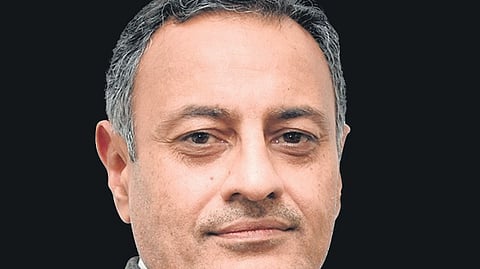

LUCKNOW : The Bharatiya Janata Party (BJP) on Thursday introduced its eighth candidate for the Rajya Sabha elections in Uttar Pradesh, leading to a necessary vote for 10 seats. The addition of Sanjay Seth, a local industrialist, on the final day for nomination submissions has intensified the competition. Now, the election features 11 candidates: eight from the BJP and three from the Samajwadi Party (SP), setting the stage for voting on February 27, with results announced the same day.
Sanjay Seth, who left the SP for the BJP in 2019, was nominated in the presence of notable BJP leaders, including Deputy Chief Minister Keshav Maurya. This move ends the possibility of an uncontested election that was anticipated until Wednesday, as the BJP had seven candidates and the SP three.
The election operates on proportional representation and a single transferable vote system, requiring a candidate to secure 37 first preference votes from the 399 active members of the 403-seat assembly to win. The BJP, with 252 members, leads the assembly, followed by the SP with 108, and the Congress with two.
Other groups include the BJP’s allies: Apna Dal (Sonelal) with 13 MLAs, the NISHAD Party with 6, the RLD with 9, and the SBSP with 6, bringing the NDA’s total to 286. If two members from Raja Bhaiyya’s Jansatta Dal Loktantrik support the BJP, the NDA will have 288 members. The lone BSP MLA’s position is still unknown. After securing enough votes for 7 candidates, the ruling alliance needs 8 more votes to ensure Sanjay Seth’s win, with 29 votes still available.
Including allies, the National Democratic Alliance (NDA) commands 286 seats, potentially reaching 288 with additional support, leaving the BJP needing more votes to secure Seth’s victory.
The situation is complex due to internal divisions within the RLD and SBSP, where some members are aligned with the SP. The SP needs just three more votes to ensure its candidates’ success, but potential support from the Congress and dissatisfaction within its ranks complicate its prospects. The dynamics suggest a tightly contested election, with outcomes dependent on party loyalties and strategic alliances.
If the RLD and SBSP MLAs, who are part of the SP’s quota, choose to support SP candidates, BJP’s Sanjay Seth will not win. But if everyone remains loyal to their original parties, the BJP will need to find 8 more votes. The SP has 108 MLAs and needs just 3 more votes to successfully elect its three candidates.